-
 bitcoin
bitcoin $87959.907984 USD
1.34% -
 ethereum
ethereum $2920.497338 USD
3.04% -
 tether
tether $0.999775 USD
0.00% -
 xrp
xrp $2.237324 USD
8.12% -
 bnb
bnb $860.243768 USD
0.90% -
 solana
solana $138.089498 USD
5.43% -
 usd-coin
usd-coin $0.999807 USD
0.01% -
 tron
tron $0.272801 USD
-1.53% -
 dogecoin
dogecoin $0.150904 USD
2.96% -
 cardano
cardano $0.421635 USD
1.97% -
 hyperliquid
hyperliquid $32.152445 USD
2.23% -
 bitcoin-cash
bitcoin-cash $533.301069 USD
-1.94% -
 chainlink
chainlink $12.953417 USD
2.68% -
 unus-sed-leo
unus-sed-leo $9.535951 USD
0.73% -
 zcash
zcash $521.483386 USD
-2.87%
What do I need to mine crypto?
Cryptocurrency mining involves solving complex problems to verify transactions and create new coins, requiring specialized hardware and software for profitability.
Jul 18, 2025 at 08:57 pm
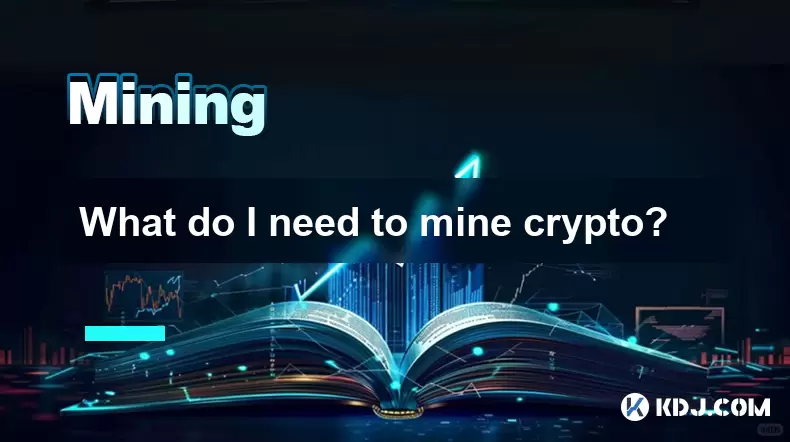
Understanding the Basics of Cryptocurrency Mining
Cryptocurrency mining is the process through which new coins are created and transactions are verified on a blockchain. Mining involves solving complex mathematical problems using computational power. The mining process is essential for maintaining the decentralized nature of cryptocurrencies like Bitcoin and Ethereum. Before diving into mining, it's important to understand that not all cryptocurrencies can be mined, and the method of mining varies depending on the blockchain's consensus mechanism.
Selecting the Right Cryptocurrency to Mine
Choosing the right cryptocurrency to mine is a critical decision that affects profitability and resource allocation. Bitcoin mining requires specialized hardware known as ASICs (Application-Specific Integrated Circuits), which are expensive and consume significant amounts of electricity. Ethereum, on the other hand, previously allowed GPU (Graphics Processing Unit) mining, making it more accessible to individual miners. However, after The Merge in 2022, Ethereum transitioned to a Proof-of-Stake (PoS) model, effectively ending traditional mining for that network. Other altcoins like Monero, Ravencoin, and Zcash still support Proof-of-Work (PoW) mining and may be more viable for beginners.
Acquiring the Necessary Hardware
Mining hardware plays a pivotal role in determining your mining efficiency and profitability. For ASIC-based cryptocurrencies, you'll need to invest in dedicated mining rigs such as the Bitmain Antminer S19 Pro or the MicroBT WhatsMiner M30S. These machines are powerful but also expensive and energy-intensive. If you're mining GPU-mineable coins, you'll need to build or purchase a mining rig equipped with multiple high-performance GPUs like the NVIDIA GeForce RTX 3060 or AMD Radeon RX 6700 XT. You'll also require a motherboard, power supply unit (PSU), cooling system, and storage to complete your setup.
Setting Up Mining Software
Once you have your hardware ready, the next step is to install mining software that communicates with the blockchain and manages your mining operations. Popular mining software includes CGMiner, BFGMiner, NiceHash, and Claymore’s Dual Miner. Each software has specific configurations depending on the hardware and cryptocurrency you're mining. For example, NiceHash allows you to mine hashpower and sell it to others, while Claymore is commonly used for Ethereum and other GPU-mineable coins. It's essential to configure the software correctly, including setting up wallet addresses, mining pool URLs, and worker names.
Joining a Mining Pool or Mining Solo
Solo mining involves mining independently without joining a group. While this gives you full control and rewards, it's generally not recommended due to the high difficulty and low probability of finding a block. Mining pools aggregate the computational power of multiple miners, increasing the chances of earning block rewards. When you join a mining pool, you share the rewards proportionally based on your contributed hash rate. Popular mining pools include F2Pool, Slush Pool, and Poolin for Bitcoin, and Ethermine or SparkPool for Ethereum-based coins. Ensure that the pool you choose supports your mining software and cryptocurrency.
Configuring a Wallet for Mining Rewards
A wallet is necessary to receive and store the coins you mine. Software wallets like Electrum for Bitcoin or MetaMask for Ethereum-based tokens are commonly used. Hardware wallets such as Ledger or Trezor offer enhanced security for storing large amounts of cryptocurrency. When configuring your mining software, you must input your wallet address to ensure that rewards are sent to the correct destination. Some mining pools also require you to create a worker name to track your mining performance and payout history.
Calculating Costs and Profitability
Electricity costs are one of the most significant factors affecting mining profitability. High energy consumption can quickly eat into your profits, especially if you're using ASIC miners. Tools like WhatToMine or CryptoCompare’s mining calculator help estimate potential earnings based on hash rate, power consumption, and electricity rates. Additionally, cooling costs, hardware depreciation, and maintenance should be factored into your overall budget. Before starting, it's crucial to run simulations and projections to determine whether mining will be financially viable in your region.
FAQs
Can I mine crypto on my laptop?While technically possible, mining on a laptop is not advisable due to limited processing power and overheating risks. Laptops are not designed for continuous, high-intensity tasks like mining and may suffer hardware damage over time.
Do I need an internet connection to mine crypto?Yes, a stable internet connection is required to communicate with the blockchain and mining pools. A slow or unstable connection can lead to rejected shares and reduced earnings.
Is crypto mining legal?The legality of mining depends on your country’s regulations. In some regions, mining is fully legal, while in others it may be restricted or taxed heavily. Always check local laws before starting.
How much can I earn from mining?Earnings vary based on cryptocurrency price, mining difficulty, hardware efficiency, and electricity costs. Profits can fluctuate daily, and break-even periods may range from months to years depending on these variables.
Disclaimer:info@kdj.com
The information provided is not trading advice. kdj.com does not assume any responsibility for any investments made based on the information provided in this article. Cryptocurrencies are highly volatile and it is highly recommended that you invest with caution after thorough research!
If you believe that the content used on this website infringes your copyright, please contact us immediately (info@kdj.com) and we will delete it promptly.
- UAE Investor Secures Major Stake in Trump-Linked Crypto Firm Amidst Shifting Geopolitical Tides
- 2026-02-02 07:10:01
- Pepe Meme Coin: Navigating the Hype, Price Predictions, and Future Outlook in 2026 and Beyond
- 2026-02-02 07:05:01
- Blockchain Gaming's Quiet Revolution: Unpacking Latest Trends and Industry Insights Amidst Market Shifts
- 2026-02-02 06:30:01
- IPO Genie, Tokenization, and YouTubers: The Big Apple's Next Big Bet on Democratized Wealth
- 2026-02-02 06:40:02
- Aptos in a Bind: Downtrend Deepens, But a Brief Relief Bounce Looms Before the Next Plunge
- 2026-02-02 07:00:01
- Pi Network, ATL, and Community: Navigating the Currents of a Mobile-First Crypto Movement
- 2026-02-02 07:00:01
Related knowledge

How to Earn Passive Income with DePIN Mining? (New Trend 2026)
Feb 01,2026 at 12:40pm
Understanding DePIN Mining Mechanics1. DePIN mining relies on real-world infrastructure participation rather than computational hashing. Users deploy ...
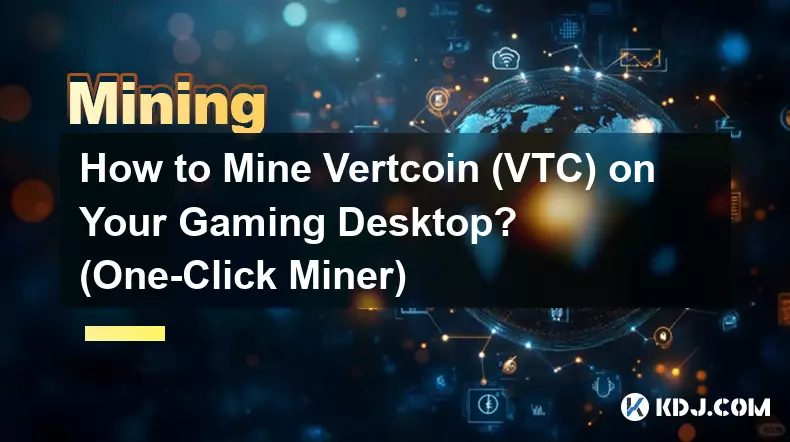
How to Mine Vertcoin (VTC) on Your Gaming Desktop? (One-Click Miner)
Feb 02,2026 at 03:39am
Understanding Vertcoin's Mining Algorithm1. Vertcoin uses the Verthash algorithm, which is intentionally memory-hard and designed to resist ASIC domin...
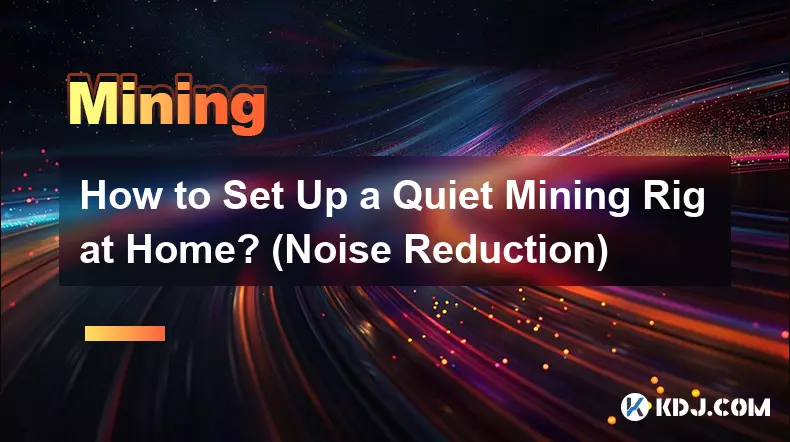
How to Set Up a Quiet Mining Rig at Home? (Noise Reduction)
Feb 01,2026 at 11:00pm
Acoustic Enclosure Design1. Use rigid, dense materials such as MDF or acoustic-grade plywood for the enclosure walls to block mid-to-high frequency no...
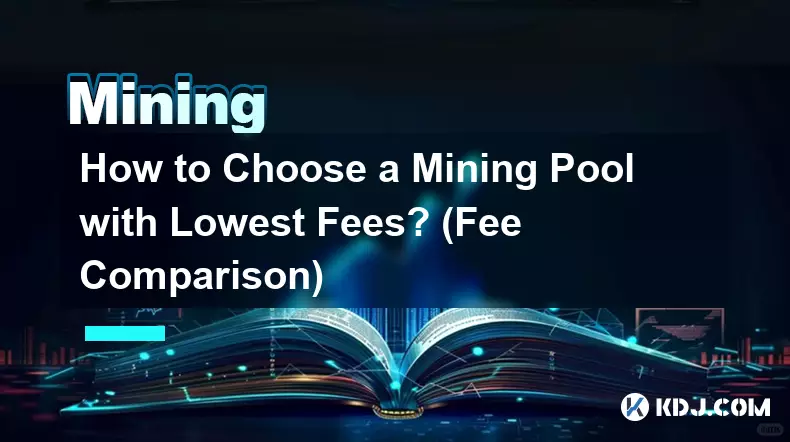
How to Choose a Mining Pool with Lowest Fees? (Fee Comparison)
Feb 02,2026 at 02:39am
Understanding Mining Pool Fee Structures1. Pool operators charge fees to cover infrastructure, maintenance, and administrative costs. These fees manif...

How to Mine Bitcoin on Mac (M1/M2/M3)? (Software Tutorial)
Feb 01,2026 at 07:19pm
Understanding Bitcoin Mining on Apple Silicon1. Bitcoin mining relies on solving cryptographic puzzles using computational power, and Apple’s M1, M2, ...
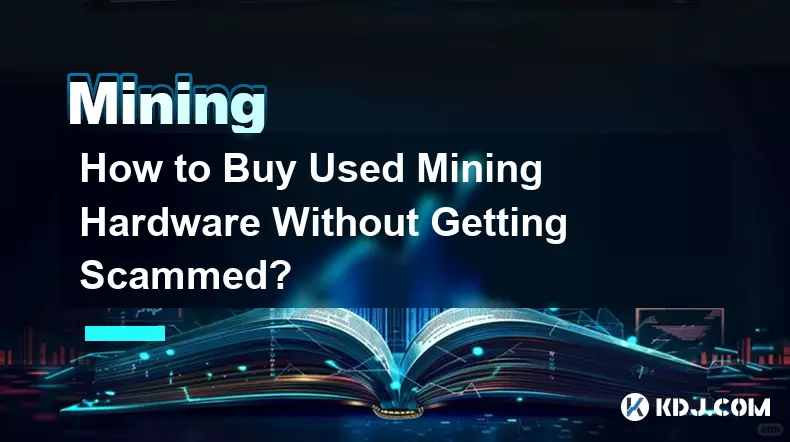
How to Buy Used Mining Hardware Without Getting Scammed?
Feb 01,2026 at 08:00pm
Research the Seller's Reputation Thoroughly1. Check archived listings and feedback on platforms like Bitcointalk forums, Mining Hardware subreddits, a...

How to Earn Passive Income with DePIN Mining? (New Trend 2026)
Feb 01,2026 at 12:40pm
Understanding DePIN Mining Mechanics1. DePIN mining relies on real-world infrastructure participation rather than computational hashing. Users deploy ...

How to Mine Vertcoin (VTC) on Your Gaming Desktop? (One-Click Miner)
Feb 02,2026 at 03:39am
Understanding Vertcoin's Mining Algorithm1. Vertcoin uses the Verthash algorithm, which is intentionally memory-hard and designed to resist ASIC domin...

How to Set Up a Quiet Mining Rig at Home? (Noise Reduction)
Feb 01,2026 at 11:00pm
Acoustic Enclosure Design1. Use rigid, dense materials such as MDF or acoustic-grade plywood for the enclosure walls to block mid-to-high frequency no...

How to Choose a Mining Pool with Lowest Fees? (Fee Comparison)
Feb 02,2026 at 02:39am
Understanding Mining Pool Fee Structures1. Pool operators charge fees to cover infrastructure, maintenance, and administrative costs. These fees manif...

How to Mine Bitcoin on Mac (M1/M2/M3)? (Software Tutorial)
Feb 01,2026 at 07:19pm
Understanding Bitcoin Mining on Apple Silicon1. Bitcoin mining relies on solving cryptographic puzzles using computational power, and Apple’s M1, M2, ...

How to Buy Used Mining Hardware Without Getting Scammed?
Feb 01,2026 at 08:00pm
Research the Seller's Reputation Thoroughly1. Check archived listings and feedback on platforms like Bitcointalk forums, Mining Hardware subreddits, a...
See all articles










































































